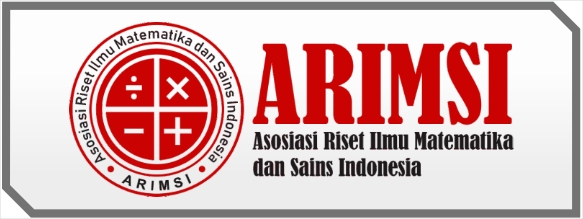Pengembangan LKPD Berbasis PBL Untuk Meningkatkan Kemampuan Komunikasi Matematis Siswa SMP Negeri 1 Tanjung Morawa
DOI:
https://doi.org/10.59581/konstanta.v2i3.3861Keywords:
LKPD, Mathematical Communication Skill Level, PBL-BasedAbstract
The purpose of this research was to produce a worksheet based on problem-based learning that would enhance students' ability to communicate mathematically when working with number pattern content. The quality of this LKPD refers to the effective aspect. This research uses a type of research and development (R&D) with a model developed by Borg & Gall. The subjects in this research were students in class VIII-5 of SMP Negeri 1 Tanjung Morawa with a total of 27 students. The object of this research is teaching materials in the form of PBL-based LKPD. Teacher response questionnaires, student response questionnaires, expert validation sheets, teacher interview question sheets, and tests of mathematical communication competence were the tools employed. Based on the research results, the effectiveness of LKPD can be seen from the achievement of learning completeness with an average individual learning completeness of 88 and for classical completeness of 96.3%. So the LKPD developed is declared "effective". Students' mathematical communication abilities are at a percentage of 90.1%, at high criteria, and it can be noted that for the N-Gain assessment, results were obtained with a student average of 0.74, meaning that there was an increase in students' mathematical communication abilities with high criteria. So, based on the results, it can be concluded that the LKPD developed in this research is valid, effective, and can improve students' mathematical communication skills.
References
Amir, M. T. (2009). Inovasi pendidikan melalui problem based learning. Jakarta: Kencana Prenada Media Group.
Damanik, F. A. (2017). Upaya meningkatkan prestasi belajar IPA dengan model pembelajaran penemuan terbimbing pada siswa kelas VI SD Negeri 339 Tamang. Jurnal Sekolah, 1(4).
Doni, E. S. (2016). Pengaruh minat belajar terhadap prestasi belajar matematika. Jurnal Formatif, 6(1), 35-43.
Fermana, A. H., & Sukardi. (2022). Efektivitas penerapan LKPD berbasis problem-based learning pada materi pelajaran dasar-dasar teknik ketenagalistrikan. Jurnal Pendidikan Teknik Elektro, 3(2). https://doi.org/P-ISSN 2745-8768
Firmansyah, D. (2015). Pengaruh strategi pembelajaran dan minat belajar terhadap hasil belajar matematika. Jurnal Pendidikan Unsika, 3(1), 34-44.
Floriano. (2012). Open ended task in the promotion of classroom communication in mathematics. International Electronic Journal of Elementary Education, 4(2), 287-300.
Hasratuddin. (2014). Pembelajaran matematika sekarang dan yang akan datang berbasis karakter. Jurnal Didaktik Matematika, 1(2), 30-42.
Hasratuddin. (2018). Mengapa harus belajar matematika?. Medan: Perdanaan Publishing.
Hirschfeld, K. (2008). Mathematical communication, conceptual understanding, and student’s attitudes toward mathematics. Jurnal Action Research Project Report, 1.
Hudoyo, H. (1990). Mengajar belajar matematika. Malang: IKIP.
Kaymakci, S. (2012). A review of studies on worksheets in Turkey. Turkey: Karadeniz Technical University. Retrieved from http://files.eric.ed.gov/fulltext/ED530699.pdf
Khassanah, U. (2015). Kesulitan menyelesaikan soal cerita matematika pada siswa SMP. Jurnal UMS, 1(9). Retrieved from http://eprints.ums.ac.id/32806/20/10.%20ARTIKEL%20PUBLIKASI.pdf
Lestari, F. (2017). Pengembangan LKPD berbasis masalah untuk meningkatkan kemampuan komunikasi matematis dan self efficacy siswa (Studi pada siswa kelas VIII semester genap MTs Negeri 2 Bandar Lampung tahun pelajaran 2015/2016) (Master's thesis). Universitas Lampung, Bandar Lampung.
Lestari, S. E. C. A., Hariyani, S., & Rahayu, N. (2018). Pembelajaran kooperatif tipe TGT (Teams Games Tournament) untuk meningkatkan hasil belajar matematika. Pi: Mathematics Education Journal, 1(3), 116-126.
Lunenburg, F. C. (2010). Communication: The process, barriers, and improving effectiveness. Journal Schooling, 1(1).
Pansa, H. E. (2017). Pengembangan LKPD dengan model problem based learning (PBL) untuk meningkatkan kemampuan komunikasi matematis siswa. Seminar Nasional Matematika dan Pendidikan Matematika 2017, 229–238.
Permana, Y., & Sumarmo, U. (2007). Mengembangkan kemampuan penalaran dan koneksi matematik peserta didik SMA melalui pembelajaran berbasis masalah. Jurnal Educationist, 1(2).
Permendikbud No. 8 Tahun. (2016). Tentang buku yang digunakan oleh satuan pendidikan.
Pranata, D. P., Aren, F., & Asep, S. E. (2021). Pengembangan LKS matematika berbasis problem based learning pada materi bangun datar sekolah dasar. Jurnal Basicedu, 5(4), 2284-2301.
Prastowo, A. (2011). Panduan kreatif membuat bahan ajar inovatif (2nd ed.). Yogyakarta: DIVA Press.
Sofyan, H., & Komariah, K. (2016). Pembelajaran problem based learning dalam implementasi kurikulum 2013 di SMK. Jurnal Pendidikan Vokasi, 6(3), 260-271.
Sugiyono. (2014). Metode penelitian kuantitatif, kualitatif, dan R&D. Bandung: Alfabeta.
Wijayanto, A. D., Siti, N. F., & Ka, W. A. (2018). Analisis kemampuan komunikasi matematis siswa SMP pada materi segitiga dan segiempat. Jurnal Pendidikan Matematika, 2(1), 97-104.
Downloads
Published
How to Cite
Issue
Section
License
Copyright (c) 2024 Konstanta : Jurnal Matematika dan Ilmu Pengetahuan Alam

This work is licensed under a Creative Commons Attribution-ShareAlike 4.0 International License.













